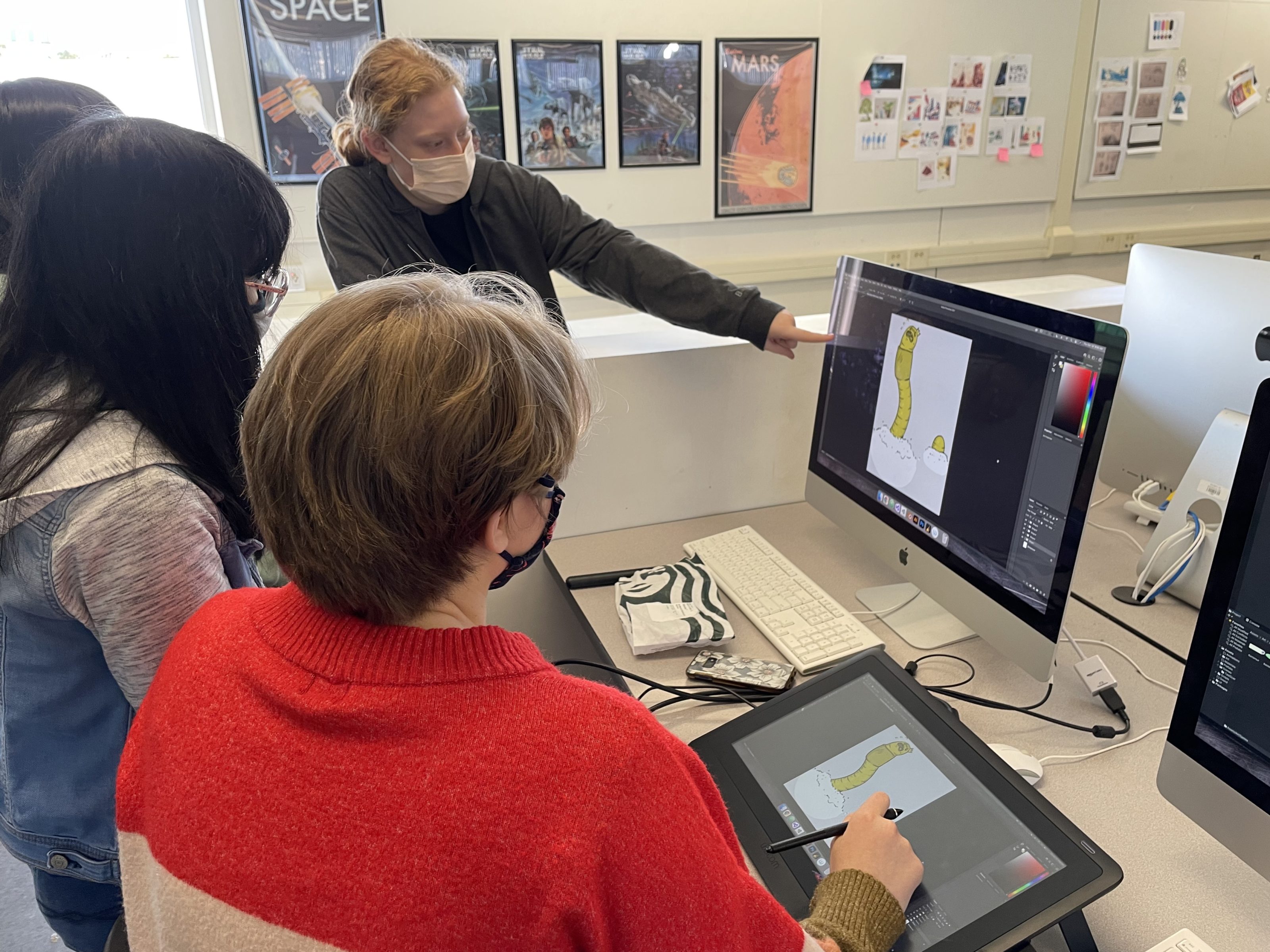
Our 2021-22 Innovation Issue salutes educators who dare to imagine a world where life is better for their students:
“I let students self-educate. I teach them skills but leave it up to them as much as possible. That’s what it’s like to work in the tech industry.”
“Andy has been serving his community for decades by making the most delicious donuts in the valley,” reads the intro to Andy’s Donuts, a mobile game that was created in Anthony Carlson’s class at Monrovia High School and released last summer.
“As he looks toward retirement, Andy has found a way to automate the donut-making process! However, there are still a few kinks to work out. Can you help him reach his goal?”

The game is available for free from the App Store and is a basic “puzzler” in which a curmudgeonly robot named Andy runs an automated shop where donuts decorate and package themselves. The player is a donut who must roll around in various ingredients (such as sprinkles) and jump into a pink box to earn a point. The game has 30 levels and a grand finale.
Creating and publishing a complex mobile game was a huge achievement for students in Monrovia’s Digital Studies Academy (DSA). They were taught, then given freedom and encouragement, by Carlson, a member of Monrovia Teachers Association.
“I wanted to create a class that was different from other programming or game development classes,” says Carlson. “I wanted to give my students real-world experiences. And what they produced was absolutely amazing.”
Students in the DSA pathway start out in Carlson’s programming class where they learn Python, a computer programming language. Next, they can enroll in his game development class. “We look at all aspects of game development including writing, character development, narrative — and creating digital art for games in 2D and 3D format.”
Students seeking extreme levels of game creation take Carlson’s advanced class called the Software Development Team, where their mission is to spend an entire school year creating a game and publishing it in the real world.
Andy’s Donuts is the second game to be released by his advanced students. The Red Dungeon mobile game was released on the itch.io platform in 2019 and won a Congressional App Challenge award in 2020. The challenge, where members of Congress host contests in their districts for middle and high school students, encourages young people to learn to code and possibly pursue careers in computer science.
Andy’s Donuts has entered the 2021 Congressional App Challenge, and there are high hopes that it will give the competition a good dunking. (Winners are to be announced in December 2021.)
It’s not all fun and games, says Carlson. “I can’t tell you how many freshmen come in bright-eyed saying they want to make games for a living, and then they find out how much work it is and realize that they would rather play games than make them.”
Carlson runs his Software Development Team like a business, taking an “agile development” approach to product development that emphasizes teamwork and project management. The team currently has 10 students.
“I let my students self-educate. I show them how to keep things organized and teach them skills to make a game work, but try to leave it up to them as much as possible, because that’s what it’s like to work in the tech industry.”
Charlie Heatherly, who was project manager on Andy’s Donuts and did coding on Red Dungeon, is now a freshman at the University of Southern California, which has the No. 1 undergrad games development program in the nation.
“It takes a lot of trust for a teacher to say to high school students, ‘Spend a year making a game and you’ll get out of it what you put into it,’ but he did that,” Heatherly says. “And we came out of that with knowledge we wouldn’t have gotten any other way.”
His sister Julia Heatherly, a junior at Monrovia High, is now in the Games Development course and enjoys creating art with graphics.

Carlson’s student Julia Heatherly shows the graphic art she is working on for a game.
“The biggest thing for me is that Mr. Carlson gives me respect as a female in game-making,” she says. “He has opened us up to an experience where we can immerse ourselves in creativity as a team. I could totally see myself going into this and pursuing it as a career.”
Carlson, a fourth-year teacher, grew up in Monrovia. He spent several years as the drummer for a rock band. Being on the road was tough on his family, so he enrolled in a four-month web development boot camp and discovered he loved computer programming. He taught for a year at Monrovia High as a career technical education teacher, then left to work at an engineering firm.
“It sucked the soul out of me,” says Carlson. “It made me realize how much I missed being in the classroom. Fortunately, Monrovia High School took me back.”
He has never created a game himself.
“I want my kids to make better things than I ever could. I want them to surpass me. And when they do that, I feel like I did something great.”
The Discussion 0 comments Post a Comment